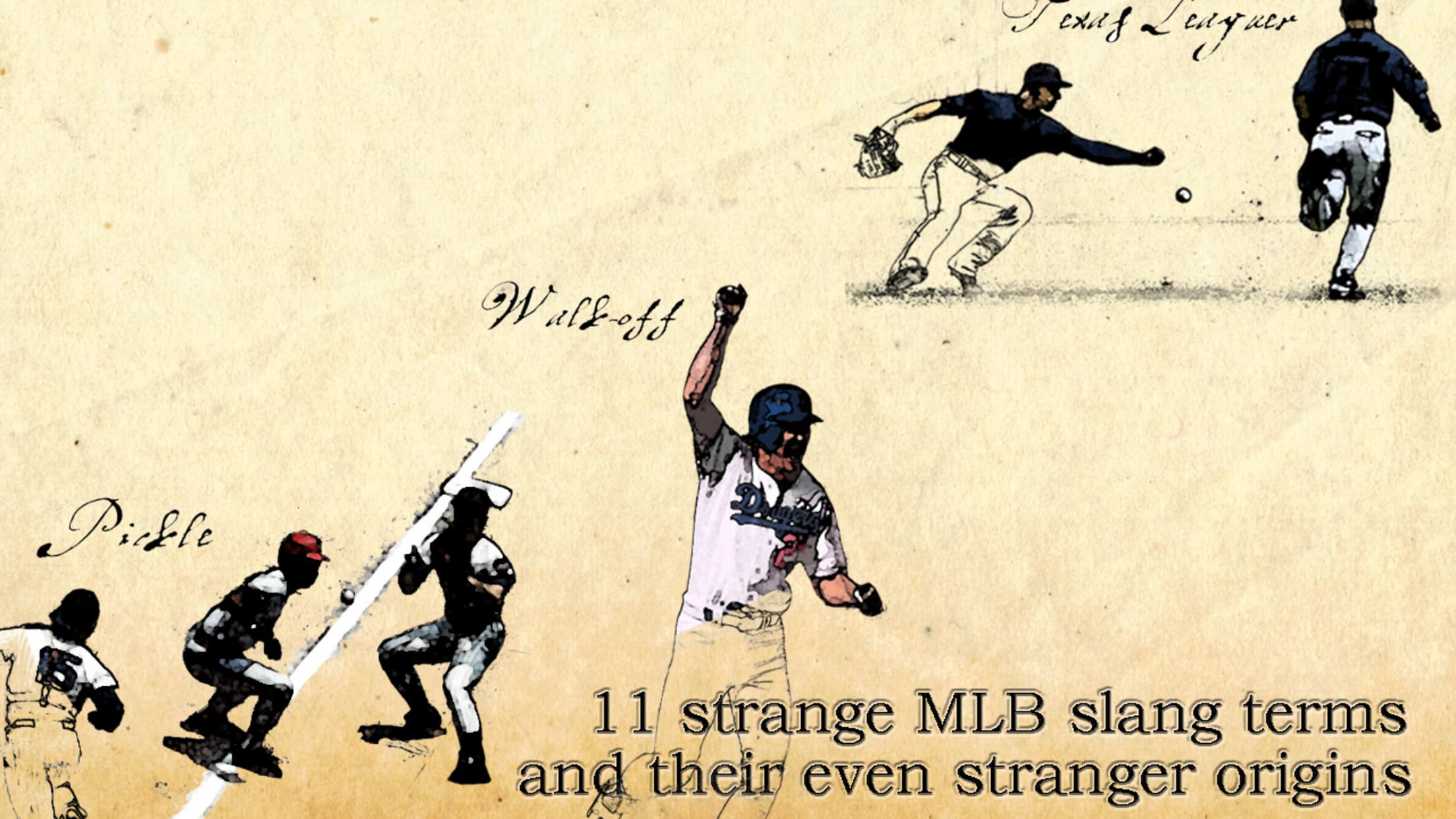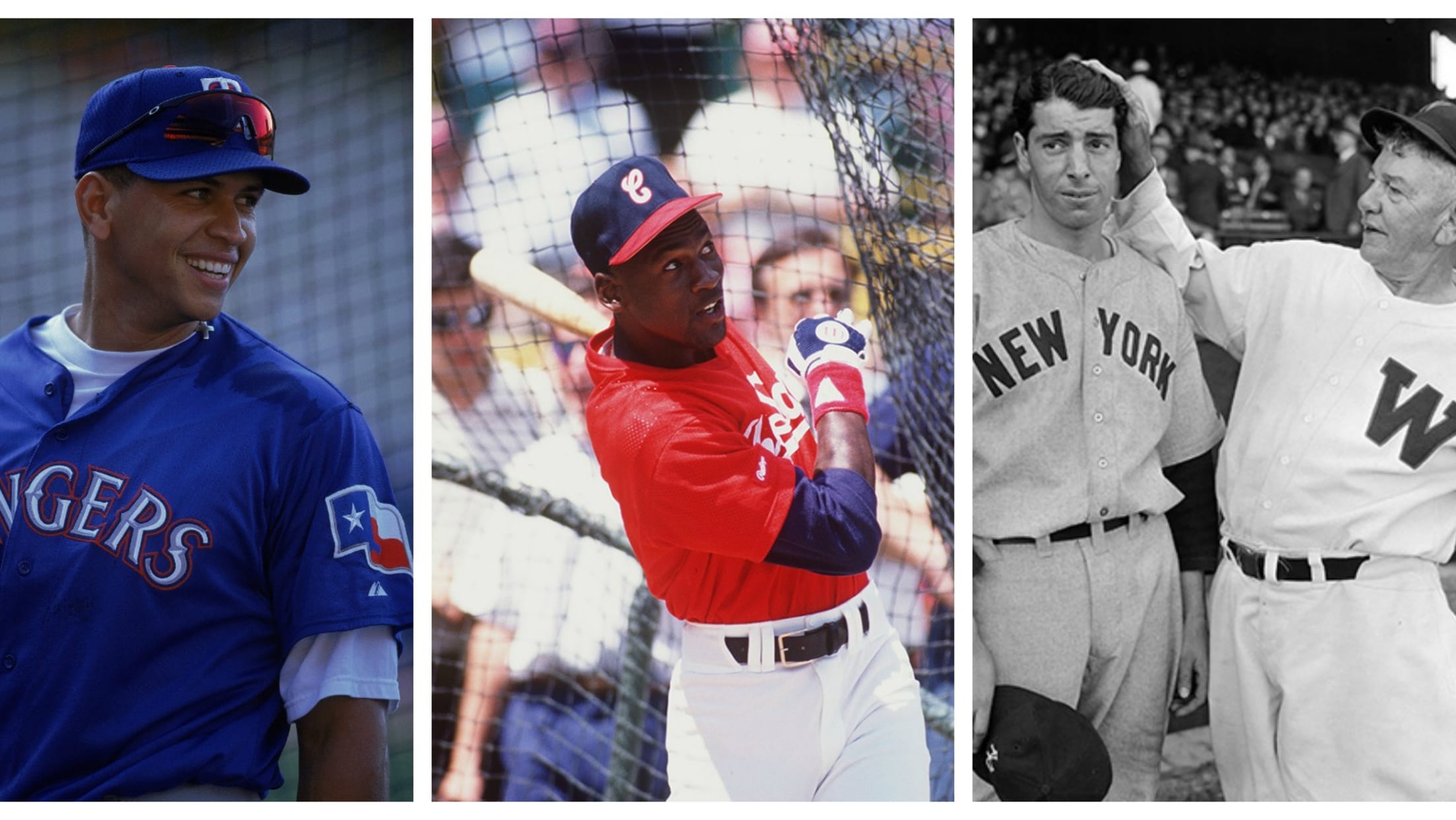How well do you remember the 10 weirdest endings in baseball history?

Part of baseball's charm is that, on any given play, just about anything can happen -- and sometimes it does, at the most (or least) opportune of times. In just the past few years, we've seen games end via balk, struck baserunner and righteous walk-off inside-the-park homer:
But even the power of rock pales in comparison to the weirdest endings that baseball history has to offer -- if you don't believe us, just read on. (And if you don't see your favorite here, be sure to let us know in the comments.)
The Jays get picked off ... three times in a row
Yes, really. After Cliff Johnson homered in the top of the 10th to give Toronto a 4-3 lead over the Orioles on Aug. 24, 1983, three consecutive Blue Jays reached base -- and three consecutive Blue Jays were picked off by Tippy Martinez.
While that technically wasn't the end of the game, it did end up costing Toronto: Baltimore utility infielder Lenn Sakata smacked a three-run walk-off homer in the bottom half to give the O's a 7-4 win.
The kicker: Toronto's picked-off baserunners were so eager to run because a series of earlier substitutions left Baltimore without any available catchers, forcing another position player to fill in. That player's name? Lenn Sakata.
Glenn Brummer steals home
A six-foot, 200-pound backup catcher, Glenn Brummer could never be confused with a sprinter. Over his five years in the Major Leagues, spent mostly in St. Louis, he stole just four bases -- and was thrown out eight times. One of those four, though, was about as memorable as it gets: On Aug. 22, 1982, with the Cardinals and Reds locked in a 4-4 tie in the 12th inning, Brummer shocked the world with a walk-off straight steal of home.
Don Money's grand slam that wasn't
Let's get this out of the way now: Yes, his name really was Don Money. A slick defensive third baseman, the Phillies traded him to Milwaukee in the fall of 1972 to make room for some guy named Mike Schmidt. Money spent the next 11 years with the Brewers, making four All-Star teams, helping the franchise to its only World Series appearance in 1982 and hitting one of the greatest home runs in history ... that didn't actually count.
On April 10, 1976, against the Yankees, Money found himself in the sort of situation that every kid dreams about in the backyard: bottom of the ninth, two outs, bases loaded, down by three. Even better, he actually made the dream come true, taking a Dave Pagan fastball over the wall for a walk-off grand slam. The crowd lost its mind. Money began to round the bases. And then first baseman Jim McKean brought everybody back -- he had called time just before Pagan's delivery, and the play was dead.
Money ended up flying out to right, and the Brewers eventually lost, 9-7.
The pebble that swung the 1924 World Series
The New York Giants were just six outs away from their third World Series title in four years, taking a 3-1 lead over the Washington Senators into the eighth inning of Game 7. But, with the bases loaded, Bucky Harris' grounder to third took a bad hop -- legend has it that it hit a pebble on the infield -- and kicked into left field, allowing the tying runs to score.
Thanks to four stellar innings of relief from future Hall of Famer Walter Johnson, the game went all the way to the bottom of the 12th inning. Muddy Ruel led off with a double (but only after Giants catcher Hank Gowdy stepped on his mask and dropped a popup in foul territory earlier in the at-bat). Johnson reached first on an error, putting men on first and second with no one out for Early McNeely.
McNeely grounded one to third, destined to be a double play -- until somehow it hit that very same pebble. The ball flew over the head of New York third baseman Fred Lindstrom, and the Senators had their first-ever World Series title.
For years this game was thought lost to time, but the Library of Congress acquired a news reel featuring highlights back in 2014, so now you can check it out for yourself:
Jack Cust falls victim to the turf monster
On Aug. 16, 2003, the Orioles trailed the Yankees, 5-4, with two outs in the bottom of the 12th. With its back to the wall, Baltimore rallied: Jack Cust drew a pinch-hit walk off of Jeff Nelson, and Larry Bigbie followed with a line drive into the gap in right-center. Cust got on his horse, looking to tie the game, but was held up by third-base coach Tom Trebelhorn -- and then things got strange.
Cust slipped and fell as he tried to put on the brakes, and soon enough he was caught in a rundown. Jorge Posada chased him back towards third and flipped the ball to Aaron Boone, who began closing in for the final out. All hope seemed lost ... until Cust looked up and saw something amazing: No Yankee had thought to back up home plate. With Posada gone and a head-start on Boone, all Cust had to do was run home and tie the game.
We repeat: All Cust had to do was run home and tie the game.
Cust tripped for the second time in a matter of seconds, Boone tagged him out and Jose Morban could hardly bear to watch in the on-deck circle.
When intentional walks go wrong
Poor Indians manager Mike Hargrove was just trying to make the best of a bad situation. Cleveland entered the bottom of the ninth against the Twins tied at six, and Minnesota quickly put men on second and third with nobody out and Kirby Puckett coming to the plate. Understandably reluctant to pitch to a future Hall of Famer with the game on the line, Hargrove elected to intentionally walk Puckett to load the bases.
Alas, it didn't work out that way:
The first pitch from unfortunately-named pitcher Eric Plunk got past the catcher, and Chuck Knoblauch came across for the winning run.
A walk-off obstruction
Game 3 of the 2013 World Series. Game tied, bottom of the ninth, men on second and third for the Cardinals with just one out. There were plenty of ways for St. Louis to get the winning run home -- and, somehow, they picked the strangest one possible.
The throw beat Craig by plenty, but home-plate umpire Jim Joyce gave the "safe" signal -- he had called obstruction on Middlebrooks, who was caught lying in the way of Craig's path to home plate. By rule, Craig was awarded the next base, and the Cardinals won.
And if you thought that was impressive, just one night later the two teams managed to one-up themselves with a game-ending pickoff.
The catcher's mask is not a glove
It's a pretty obscure rule, tucked into the back of the official MLB rulebook:
"Each runner including the batter-runner may, without liability to be put out, advance three bases if a fielder deliberately touches a fair ball with his cap, mask or any part or any part of his uniform detached from its proper place on his person."
Rule 7.05(b) is generally best remembered as the rule preventing fielders from throwing their gloves at the baseball, but on August 12, 1995, it cost catcher Angelo Encarnacion and the Pirates the game.
With the score tied at 10 in the bottom of the 11th, the Dodgers put runners on second and third with one out. A pitch got away from Encarnacion, and, with the winning run just 90 feet away, he wanted to get the ball back as quickly as possible -- so he reached out and scooped it up with his mask:
Catcher's interference was called, Roberto Kelly came home to score and L.A. won the game.
A-Rod lifted a towering popup to shallow right field, and all of Queens exhaled in relief ... until Luis Castillo watched the ball pop out of his glove:
With two outs, both runners were off on contact, and Teixeira came all the way home from first with the winning run.
Merkle's boner
Down the stretch of the 1908 season, the Cubs and Giants battled back and forth in one of the greatest pennant races in baseball history. On Sept. 23, the two met at the Polo Grounds tied atop the NL, with just a week left in the regular season and the eyes of the baseball world on them.
The game was tied at 1 heading into the ninth, when Al Bridwell lined a single to center field to score the game-winning run. Everybody thought the Giants had won ... everybody, that is, including New York rookie Fred Merkle.

Merkle had been on first when Bridwell singled, and as the winning run crossed the plate and fans began to storm the field, he immediately began heading for the dugout rather than touching second base. Which, according to Rule 59 of the MLB rulebook, was a problem:
Provided, however, that if [a baserunner] reach home on or during a play in which the third man be forced out or be put out, before reaching first base, a run shall not count.
Cubs second baseman and future Hall of Famer Johnny Evers screamed for the ball and stepped on second, forcing out the third man of the inning. Home-plate umpire Hank O'Day, seeing that Merkle had never advanced a base, called Merkle out and took the run off the board.
Unable to clear thousands of (now-livid) Giants fans from the field, O'Day suspended the game due to darkness. It was officially ruled a 1-1 tie, and the Cubs went on to win the pennant and the World Series.





